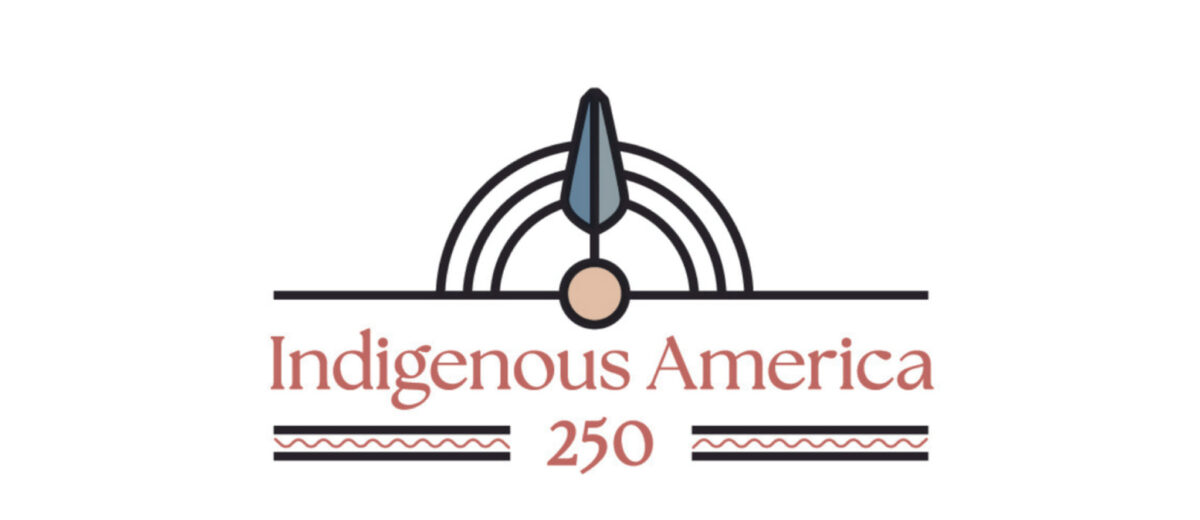A new research initiative focuses on the histories of tribal nations and the Revolutionary War in the Northeast. Alyssa Mt. Pleasant, PhD (Lead Scholar/Principal Investigator) of ATW Research + Consulting and Laticia McNaughton (Project Manager) of Schoodic Institute are assembling a research team who will help the National Park Service, Interior Region 1, address its goal to “acknowledge and honor” Indigenous peoples during the 250th anniversary of the Declaration of Independence. They are developing a community-engaged, collaborative effort to expand understandings of the Revolutionary War and its consequences through tribally-centered and site-specific studies.
Too often, the histories of Indigenous peoples and tribal nations are overlooked in public memory. Indigenous America 250 provides an important opportunity to develop new research that will foreground these histories in relation to the Revolutionary War as part of the commemoration by the National Park Service. At its core, Indigenous America 250 is a research initiative that relies on the engagement of Indigenous professionals, students, leaders, community members at all levels.
Both Mt. Pleasant, who holds a PhD in History, and McNaughton, who is a PhD candidate in American Studies at the University at Buffalo, have spent their careers working in Native American and Indigenous Studies. Dr. Mt. Pleasant’s research focuses on Haudenosaunee (Iroquois) history during the Revolutionary War era. Before establishing ATW Research + Consulting, she spent over fifteen years as a faculty member at Yale University and the University at Buffalo, and also served as founding Program Director of the Native American Scholars Initiative at the American Philosophical Society. Laticia McNaughton specializes in Indigenous food sovereignty, language revitalization, and community-engaged work. She is completing a dissertation on Indigenous food sovereignty focusing on Haudenosaunee (Iroquois) food and cultural history, language, and land-based knowledge.
Their vision for Indigenous America 250 is grounded in best practices of Native American and Indigenous Studies (NAIS), which Mt. Pleasant and co-authors Caroline Wigginton and Kelly Wisecup have defined in this way:
NAIS analyzes Indigenous peoples’ intellectual traditions, literatures, histories, and sociopolitical formations; foregrounds Native perspectives and contexts as foundational to accurate and conscientious scholarship; and shows that scholars are responsible for knowing that what they say about the past and how they say it has an ethical obligation to and tangible impact upon descendant communities and polities. (The William and Mary Quarterly, 2018)
Beginning in Fall 2022, with support from the NPS Cultural Resources Division, Mt. Pleasant and McNaughton initiated informal outreach to Native leaders, from the Dawnland in Maine to the Chesapeake-Tidewater region in Virginia, to gauge their interest and listen to any concerns about this project. The National Park Service, Interior Region 1, works with 43 tribal nations in the Northeast region in relation to its 83 national parks, 23 heritage areas, and numerous historic and landmarks. Following up on their initial outreach, the Indigenous America 250 team developed a research plan for engaging with tribal nations across the region and identifying critical NPS sites connected to the commemoration.
One key piece of the research plan involves establishing several small working groups of Indigenous experts – leadership, scholars, tribal historic preservation officers, knowledge-keepers – who can help identify research priorities and develop best practices for this project. Best practices include capacity-building projects with Native youth, data sovereignty and data sharing understandings, and other components.
Mt. Pleasant and McNaughton are thrilled to announce the new Indigenous America 250 StoryMakers Internship Program, which will begin in Summer 2024. This program is the outcome of a direct request from an Indigenous working group in Southern New England, convened through an outreach effort led by colleagues in the Tribal and Cultural Affairs program in Region 1. The working group identified training in archival research methods as one of its key priorities and requests. The Indigenous America 250 team was called to action and worked to develop a paid, residential summer internship program for Native youth (ages 18-30). A call for internship applications is forthcoming in February 2024.
The StoryMakers Internship Program was developed in collaboration with Rematriation, Inc. (an Indigenous women-led nonprofit organization) as the internship program’s fiscal sponsor. It is a pilot project for the National Park Service that is fully funded for two years. This exciting, capacity-building internship will provide training for future young scholars, bolstering representation of Indigenous scholars and historians in the future and supporting the research goals of the larger Indigenous America 250 initiative. There is also an opportunity to build future additional regional research initiatives modeled on this program. Both the Indigenous America 250 and StoryMakers Internship effort are exciting next steps in contributing to the field of early American history and Native American and Indigenous Studies.
